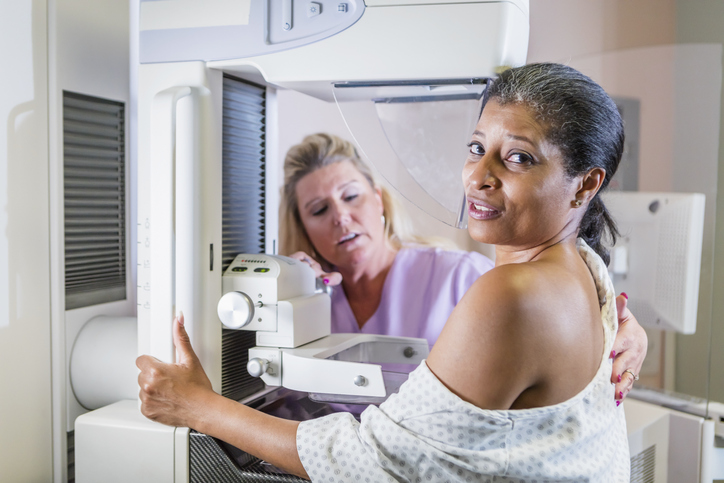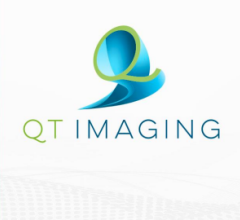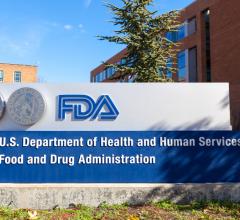
Getty Images
May 9, 2023 — The U.S. Preventive Services Task Force (Task Force) today posted a draft recommendation statement on screening for breast cancer. The Task Force now recommends that all women get screened for breast cancer every other year starting at age 40. This is a B grade. More research is needed on whether or not women with dense breasts should have additional screening with breast ultrasound or MRI, and on the benefits and harms of screening in women older than 75. These are I statements. The use of the term women in this draft recommendation includes cisgender women and other people assigned female at birth.
Breast cancer is the second most common cancer and the second most common cause of cancer death for women in the United States. While the Task Force has consistently recognized the lifesaving value of mammography, we previously recommended that women in their 40s make an individual decision about when to start screening based on their health history and preferences. In this new recommendation, the Task Force now recommends that all women get screened starting at age 40. This change could result in 19 percent more lives being saved.
“New and more inclusive science about breast cancer in people younger than 50 has enabled us to expand our prior recommendation and encourage all women to get screened every other year starting at age 40,” says Task Force immediate past chair Carol Mangione, M.D., M.S.P.H. “This new recommendation will help save lives and prevent more women from dying due to breast cancer.”
Black women are 40 percent more likely to die of breast cancer than White women and too often get deadly cancers at younger ages. The Task Force recognizes this inequity and is calling for more research to understand the underlying causes and what can be done to eliminate this health disparity.
“Ensuring Black women start screening at age 40 is an important first step, yet it is not enough to improve the health inequities we face related to breast cancer,” says Task Force vice chair Wanda Nicholson, M.D., M.P.H., M.B.A. “In our draft recommendation, we underscore the importance of equitable followup after screening and timely and effective treatment of breast cancer and are urgently calling for more research on how to improve the health of Black women.”
There are many key areas where more research is essential. We need to know how best to address the health disparities faced by Black, Hispanic, Latina, Asian, Native American, and Alaska Native women, particularly how to ensure equitable followup after screening. Timely and effective treatment for breast cancer has the potential to save more lives for people experiencing disparities related to racism, lack of access to care in rural communities, low income, and other factors. We also need more research on the benefits and harms of screening and treatment in women ages 75 and older. The balance of benefits and harms may shift as women age, but there is very limited research on this age population. Additionally, nearly half of all women have dense breasts, which increases their risk for breast cancer and means that mammograms may not work as well for them. We need more studies that show how additional screening with breast ultrasound or MRI might help women with dense breasts.
“We know that women with dense breasts are at higher risk of breast cancer and, unfortunately, mammograms do not work as well for them,” says Task Force member John Wong, M.D. “What we don’t know yet, and what we are urgently calling for more research on, is whether and how additional screening for women with dense breasts might be helpful, including through ultrasound, breast MRIs, or something else.”
This draft recommendation applies to women at average risk of breast cancer. This includes people with a family history of breast cancer and people who have other risk factors, such as having dense breasts. It does not apply to people who have a personal history of breast cancer, who are at very high risk of breast cancer due to certain genetic markers or a history of high-dose radiation therapy to their chest at a young age, or who have had a high risk lesion on previous biopsies. Anyone concerned with their breast health should talk with their healthcare professional.
The Task Force’s draft recommendation statement, draft evidence review, and draft modeling report have been posted for public comment on the Task Force website at https://www.uspreventiveservicestaskforce.org/. Comments can be submitted from May 9, 2023, to June 5, 2023, at https://www.uspreventiveservicestaskforce.org/tfcomment.htm.
The Task Force is an independent, volunteer panel of national experts in prevention and evidence-based medicine that works to improve the health of people nationwide by making evidence-based recommendations about clinical preventive services such as screenings, counseling services, and preventive medications.
Dr. Mangione is the chief of the Division of General Internal Medicine and Health Services Research; holds the Barbara A. Levey, M.D., and Gerald S. Levey, M.D., endowed chair in medicine; and is a distinguished professor of medicine and public health at the University of California, Los Angeles (UCLA), and the executive vice chair for Health Equity and Health Services Research in the UCLA Department of Medicine.
Dr. Nicholson is a senior associate dean for diversity, equity, and inclusion and professor of prevention and community health at the Milken Institute School of Public Health at the George Washington University. She is a member and vice-president-elect of the board of directors of the American Board of Obstetrics & Gynecology; Editor for Health Equity, Diversity and Inclusion for the American Journal of Obstetrics & Gynecology, past chair of the American College of Obstetricians and Gynecologists (ACOG) Diversity, Equity, and Inclusive Excellence Workgroup, and an immediate past member of the executive board of ACOG.
Dr. Wong is vice chair for Academic Affairs, chief of the Division of Clinical Decision Making, and a primary care physician in the Department of Medicine at Tufts Medical Center. He is also a professor of medicine at Tufts University School of Medicine and a master of the American College of Physicians.
For more information: www.uspstf.net
Related Breast Density Content:
VIDEO: Research and Advancements in Breast Imaging Technology
VIDEO: FDA Update on the US National Density Reporting Standard - A Discussion on the Final Rule
One on One … with Wendie Berg, MD, PhD, FACR, FSBI
Creating Patient Equity: A Breast Density Legislative Update
AI Provides Accurate Breast Density Classification
VIDEO: The Impact of Breast Density Technology and Legislation
VIDEO: Personalized Breast Screening and Breast Density
VIDEO: Breast Cancer Awareness - Highlights of the NCoBC 2016 Conference
Fake News: Having Dense Breast Tissue is No Big Deal
The Manic World of Social Media and Breast Cancer: Gratitude and Grief
Related Breast Imaging Content:
Single vs. Multiple Architectural Distortion on Digital Breast Tomosynthesis
Today's Mammography Advancements
Digital Breast Tomosynthesis Spot Compression Clarifies Ambiguous Findings
AI DBT Impact on Mammography Post-breast Therapy
ImageCare Centers Unveils PINK Better Mammo Service Featuring Profound AI
Radiologist Fatigue, Experience Affect Breast Imaging Call Backs
Fewer Breast Cancer Cases Between Screening Rounds with 3-D Mammography
Study Finds Racial Disparities in Access to New Mammography Technology


 February 06, 2026
February 06, 2026 









